7 Best Herbal Creams For Itchy Scalp
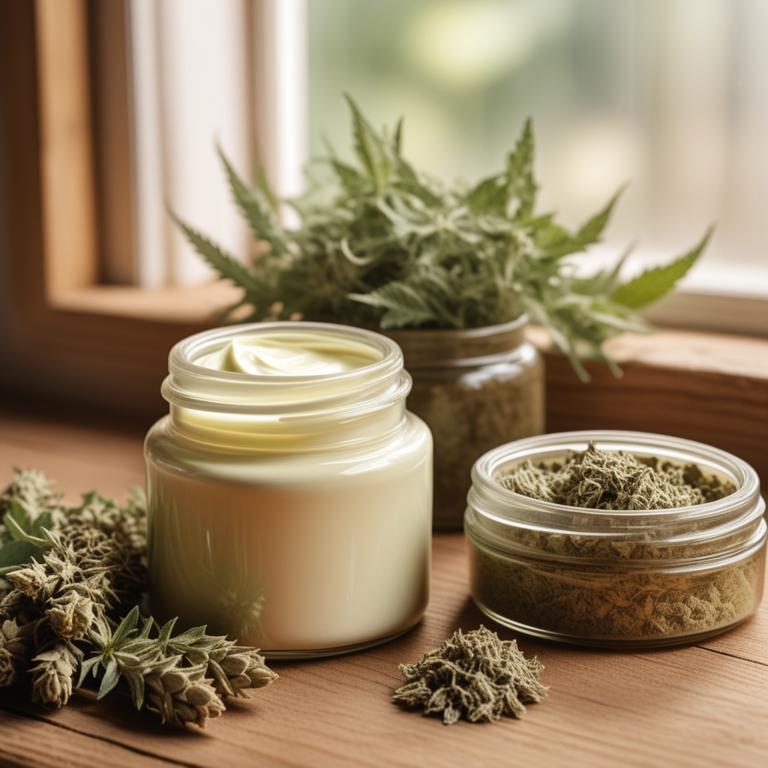
Herbal creams for itchy scalp are topical preparations that use plant extracts to soothe and calm irritated scalps, providing relief from conditions such as dandruff, eczema, and psoriasis.
These creams have numerous benefits, including reducing inflammation, promoting healthy hair growth, and preventing further irritation, making them a popular choice among those suffering from itchy scalp ailments.
Some examples of herbal creams that can effectively treat itchy scalp include tea tree oil cream, which has antibacterial properties to combat fungal infections, aloe vera cream, which soothes and moisturizes the scalp, and neem cream, which has antifungal and anti-inflammatory properties to reduce redness and itching.
Other herbal creams such as chamomile cream, lavender cream, and rosemary cream can also provide relief from itchy scalp by calming and soothing the scalp, reducing inflammation, and promoting healthy hair growth.
According to the study, creams for itchy scalp may be beneficial in treating seborrhea dermatitis, which is characterized by itchy scalp symptoms, due to the potential of medicinal plants to inhibit the growth of Malassezia and decrease symptoms associated with the condition.
Below there's a list of the 7 best herbal creams for itchy scalp.
- 1. Aloe barbadensis creams
- 2. Urtica dioica creams
- 3. Melaleuca alternifolia creams
- 4. Cinnamomum camphora creams
- 5. Rosmarinus officinalis creams
- 6. Thymus vulgaris creams
- 7. Santalum album creams
Also you may be interested in...
TODAY'S FREE BOUNDLE
Herb Drying Checklist + Herbal Tea Shopping List + Medicinal Herbs Flashcards
Enter you best email address below to receive this bundle (3 product valued $19.95) for FREE + exclusive access to The Aphotecary Letter.
$19.95 -> $0.00
1. Aloe barbadensis creams
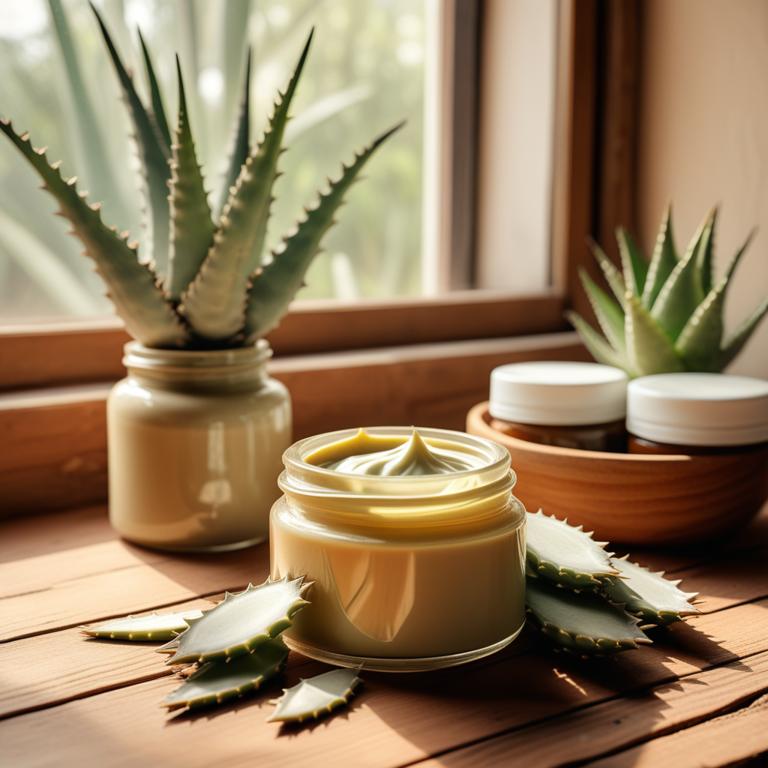
Aloe barbadensis creams have been used for centuries to treat itchy scalp ailments due to their soothing and anti-inflammatory properties.
The gel extracted from the aloe vera plant contains bioactive constituents such as aloin, aloe-emodin, and vitamins A, C, and E, which help to calm the scalp, reduce inflammation, and promote healing.
These properties in the herbal preparation help to treat itchy scalp ailments by reducing redness, itching, and flaking, thereby providing relief to individuals suffering from conditions like dandruff and eczema.
The benefits of using aloe barbadensis creams for treating itchy scalp ailments include their natural, non-irritating, and non-greasy texture, making them an excellent alternative to harsh chemical-based treatments.
Related Study
According to "Current topics in medicinal chemistry", Aloe barbadensis creams for itchy scalp have been reported to demonstrate anti-dandruff activity by disrupting the microbial growth associated with dandruff formation.
2. Urtica dioica creams
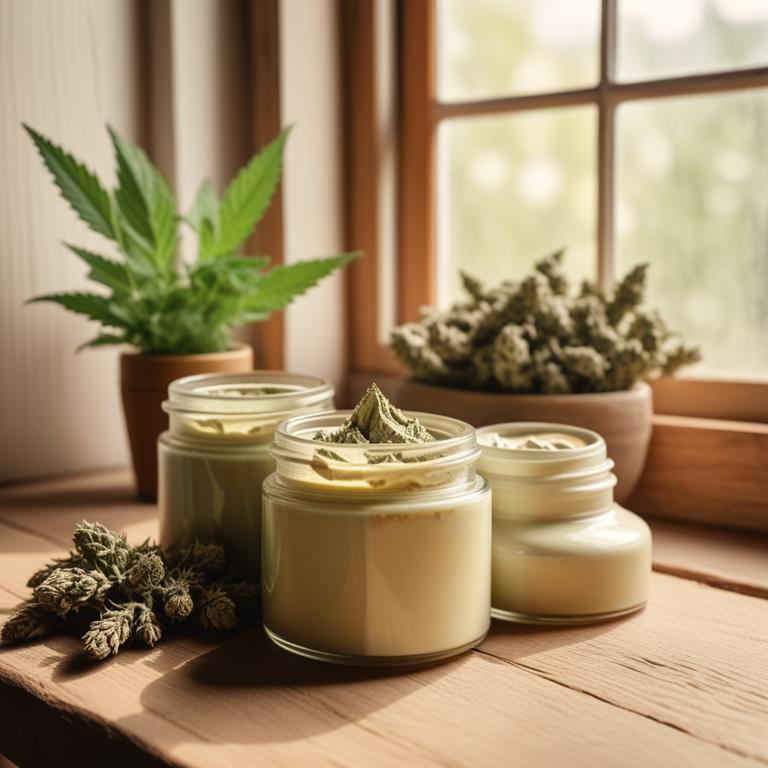
Urtica dioica creams, derived from the leaves of the stinging nettle plant, have been traditionally used to treat the itchy scalp ailment of dandruff.
The anti-inflammatory and antifungal properties of this herbal preparation help to soothe and calm the scalp, reducing irritation and flaking.
The bioactive constituents, including flavonoids and terpenoids, found in Urtica dioica creams have been shown to exhibit antifungal and antibacterial activities, which help to control the growth of yeast-like fungi that contribute to dandruff.
By using Urtica dioica creams, individuals can experience a reduction in scalp inflammation, itching, and flaking, ultimately promoting a healthier and more balanced scalp.
3. Melaleuca alternifolia creams
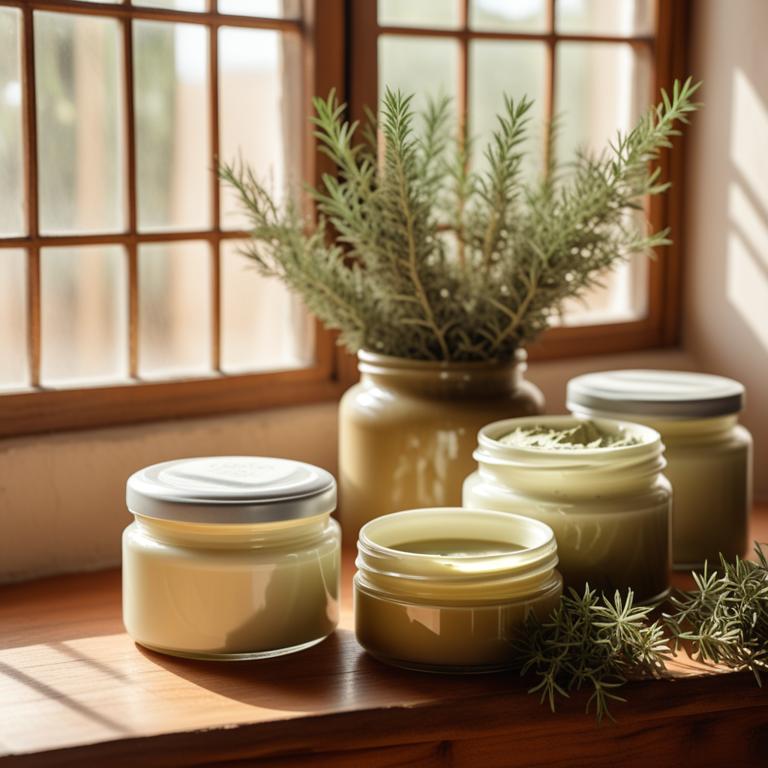
Melaleuca alternifolia creams, also known as tea tree oil creams, have been traditionally used to treat an itchy scalp, primarily due to their antifungal and antibacterial properties that help combat scalp infections such as dandruff and seborrheic dermatitis.
The bioactive constituents, including terpinen-4-ol and cineole, in these creams help to soothe and calm the scalp, reducing inflammation and itching.
By creating a barrier on the scalp's surface and inhibiting the growth of pathogenic microorganisms, Melaleuca alternifolia creams provide relief from itchy scalp conditions, promoting a healthy scalp environment.
The benefits of using these creams include reduced inflammation, improved scalp health, and a decrease in the frequency and severity of itchy scalp episodes.
Related Study
According to "Adverse drug reactions and toxicological reviews", Melaleuca alternifolia creams for itchy scalp may possess beneficial antifungal, antiviral, antibacterial and acaricidal activity to help alleviate symptoms.
4. Cinnamomum camphora creams
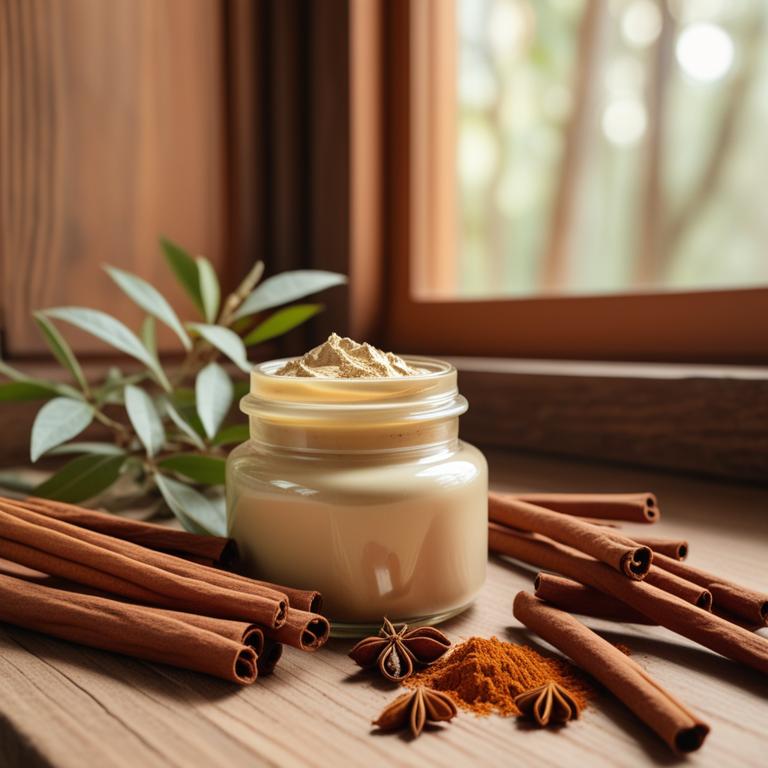
Cinnamomum camphora creams have been traditionally used to treat itchy scalp ailments, including dandruff and psoriasis, due to its anti-inflammatory and antifungal properties.
The bioactive constituents of Cinnamomum camphora, such as camphor and borneol, help to reduce inflammation and soothe the scalp, thereby providing relief from itching and flaking.
These creams work by inhibiting the growth of fungal and bacterial pathogens that contribute to itchy scalp conditions, ultimately promoting a healthy scalp and preventing further irritation.
The benefits of using Cinnamomum camphora creams to treat itchy scalp ailments include reduced inflammation, improved scalp health, and a decrease in the occurrence of flaky skin.
5. Rosmarinus officinalis creams
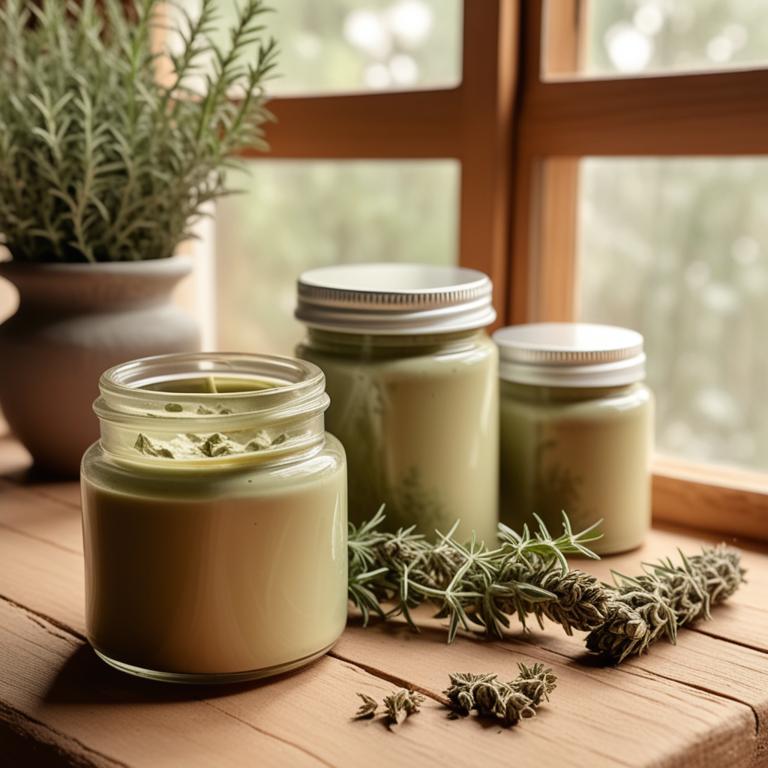
Rosmarinus officinalis creams have been used to treat itchy scalp ailments due to their anti-inflammatory and antiseptic properties, which help to soothe and calm the affected area.
The herbal preparation contains bioactive constituents such as carnosic acid and rosmarinic acid, which exhibit antioxidant and anti-inflammatory activities, helping to reduce itchiness and irritation.
By reducing inflammation and promoting a healthy scalp environment, Rosmarinus officinalis creams help to alleviate the symptoms of itchy scalp conditions, such as dandruff and psoriasis.
The benefits of using Rosmarinus officinalis creams to treat itchy scalp ailments include reduced itchiness, improved scalp health, and a reduction in the risk of further irritation and inflammation.
Related Study
According to the content in the scientific study, Rosmarinus officinalis creams for itchy scalp may have beneficial therapeutic potential due to the presence of bioactive phytoconstituents with no or minimal side effects.
6. Thymus vulgaris creams
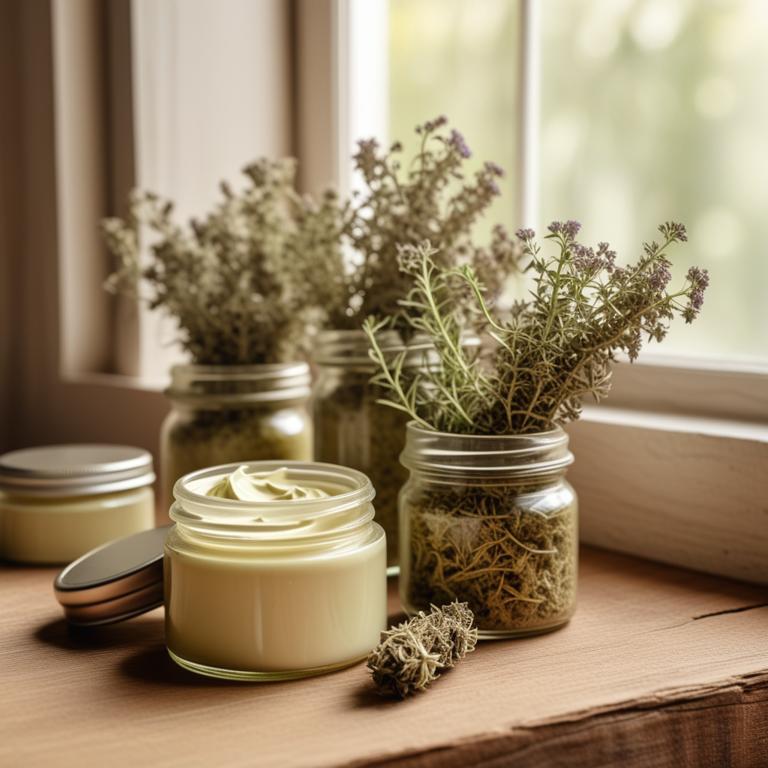
Thymus vulgaris creams have been traditionally used to treat the itchy scalp ailment due to their anti-inflammatory and antiseptic properties, which help to soothe and calm the scalp.
The bioactive constituents of thymol, carvacrol, and borneol in Thymus vulgaris creams have been found to exhibit antimicrobial and antifungal activities, thereby reducing the growth of pathogens that can cause itchiness and irritation.
These creams help to treat the itchy scalp ailment by reducing inflammation, preventing the growth of fungal infections, and promoting a healthy scalp environment.
The benefits of using Thymus vulgaris creams to treat the itchy scalp ailment include reduced itchiness, improved scalp health, and a decrease in the risk of further infection.
Related Study
According to "Current topics in medicinal chemistry", Thymus vulgaris creams for itchy scalp have been reported to demonstrate anti-dandruff activity by disrupting the microbial growth associated with dandruff formation.
7. Santalum album creams
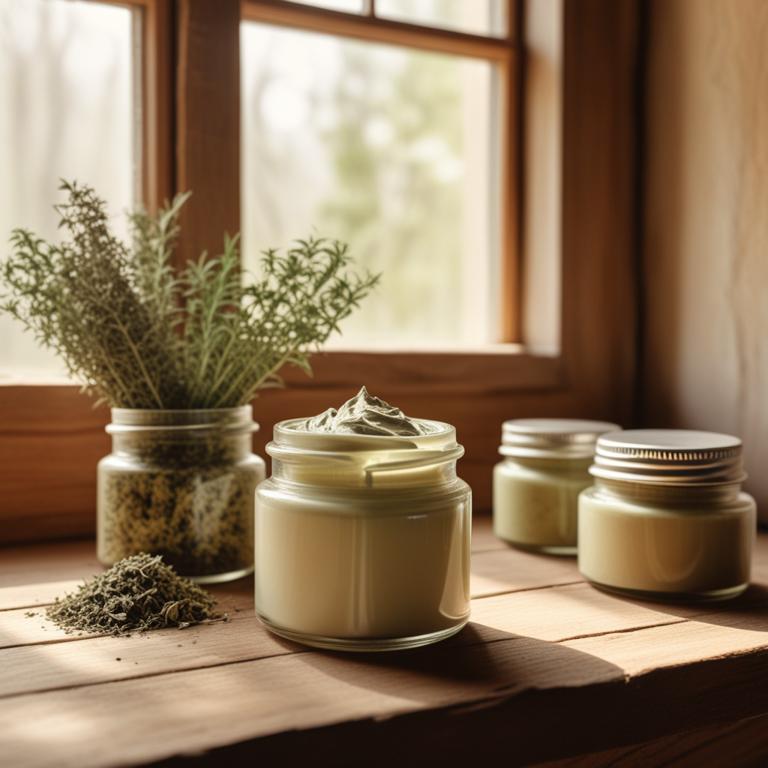
Santalum album creams have been traditionally used to treat the itchy scalp ailment of seborrheic dermatitis due to their anti-inflammatory and antifungal properties.
This herbal preparation helps to soothe and calm the irritated scalp, reducing the intensity of itching and flaking.
The bioactive constituents of Santalum album creams, including santalol and santalene, exhibit potent antioxidant and antimicrobial activities that contribute to their therapeutic effects.
The benefits of using Santalum album creams to treat seborrheic dermatitis include improved scalp health, reduced inflammation, and a decrease in the occurrence of flakes and itchiness.